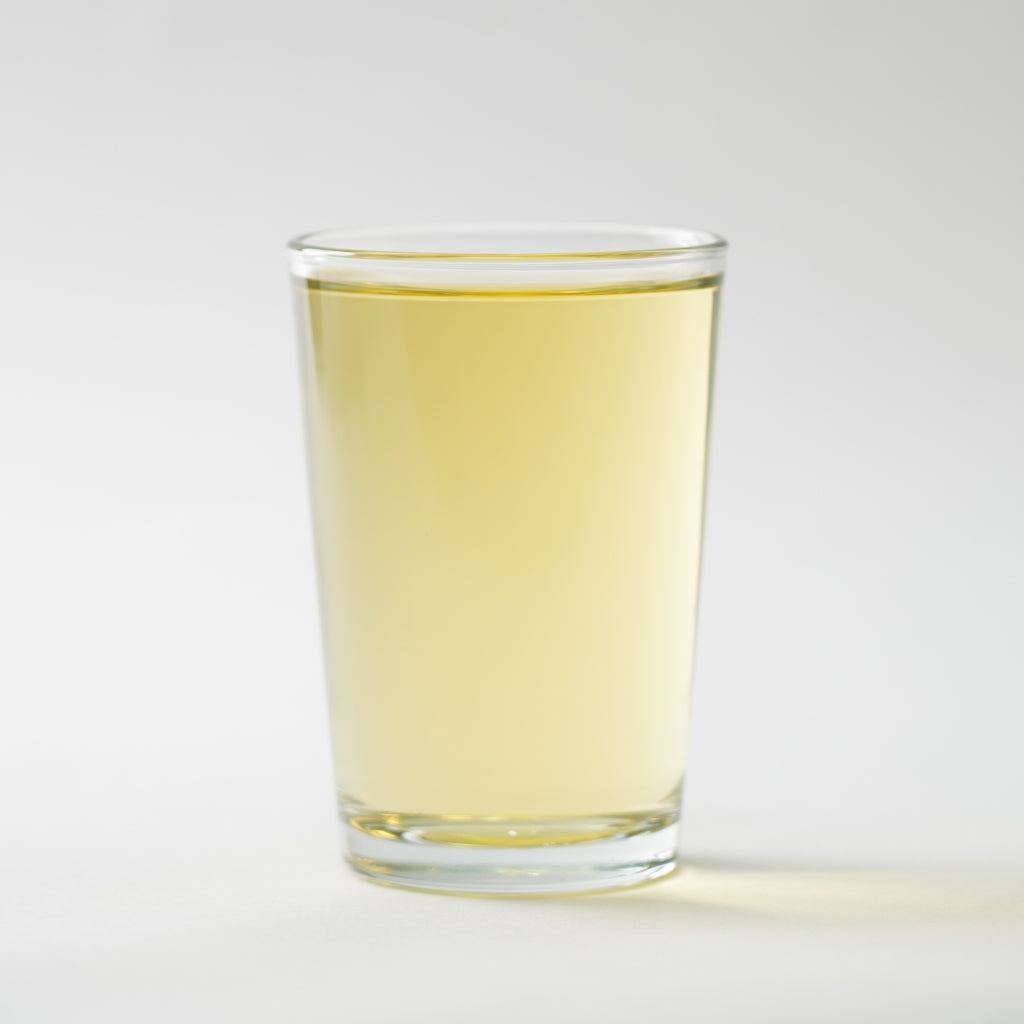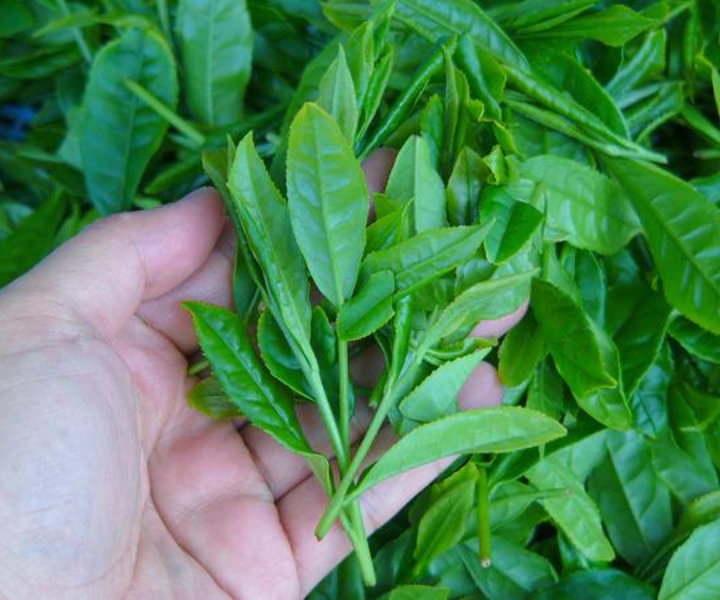
Japanese Tea Production & Process

Japanese tea is representative of Japan.
Although Japanese tea is the most familiar drink for Japanese people, only a few people can explain the production process of the tea we drink every day.
There is a tea-growing region where tea leaves are grown in a vast natural setting with spectacular scenery.
It is called ISAGAWA, located in the mid-mountainous region of Hamamatsu City, Shizuoka Prefecture.
About 20 hectares of tea leaves are grown here on a completely organic cultivation basis.
It is a very rare area known as one of the leading organic tea production areas in Japan, where an entire village engages in organic cultivation.
Young immigrants are coming from all over Japan in search of a sustainable environment.
There is no reason why tea leaves grown in great nature, using no pesticides or any chemical fertilizers at all, can’t be tasty!
More than 30 years ago, a farmer started pesticide-free cultivation, which was rejected by everyone, and the tea manufacturer and wholesaler continued to buy the tea leaves produced by the farmers at a fair price.
This collaboration has made it possible to spread organic farming to the entire village, as it is today.
What is the real thing…
It took many years of trial and error while taking years to obtain stable quality and quantity. There are no correct answers that anyone can tell us, and each year we have progressed by groping our way through nature with a “first-year student” feeling.
Only when there is a destination to sell to will there be a willingness to go pesticide-free. Often talk about creating the real thing, but what is the real thing?
A pioneer who began to cultivate without pesticides said, “I believe that the real thing is to produce under the same conditions as nature. Plants are different from human beings, but if we think that they are just like human beings, we will be able to understand them at the root.”
Producing tea friendly to people and the earth
ISAGAWA organic plantation area is a small mountain village located 400 meters above sea level, surrounded by mountains. The tea grown here has long been known as “mountain tea”. The rich spring water, temperature differences between day and night, and morning fog are excellent conditions for mountain tea.
The mountain teas are characterized by cooler temperatures and shorter hours of sunlight than other Japanese tea-growing regions and grow into tea leaves with less bitterness and astringency and more umami and sweetness.
To be certified as organic, a tea plantation must have been free of chemical fertilizers and pesticides for at least three years since the application for organic status was submitted.
The tea plantation must also be located in an area where pesticides sprayed from surrounding tea plantations do not come in contact with the plantation. The tea farm must then be certified as an organic JAS supplier, and the production process must be controlled and recorded.
In the case of tea production, tea leaves must be steamed as soon as possible after harvesting to stop oxidative fermentation and to produce a semi-processed tea called “ARACHA”.
ARACHA (Rough tea) to final finished product
Farmers produce their own teas up to the rough tea at the production site, and the final process is done at a factory called a finishing factory, where the tea is made into the final product.
The finishing factory acquired the FSSC22000 certification, also JAS organic certification. The factory has taking controlled by Natsumi OSADA, the third president of the OSADATEA company in Shizuoka Japan. He is a young and highly motivated representative in the tea industry. He has won a national tea judging technique competition and received the “Minister of Agriculture, Forestry and Fisheries Award,” Also, He holds the 8th dan of the national tea judging technique.
We are making delicious Japanese tea today in the hope that tea lovers around the world can continue to enjoy good health both mentally and physically.


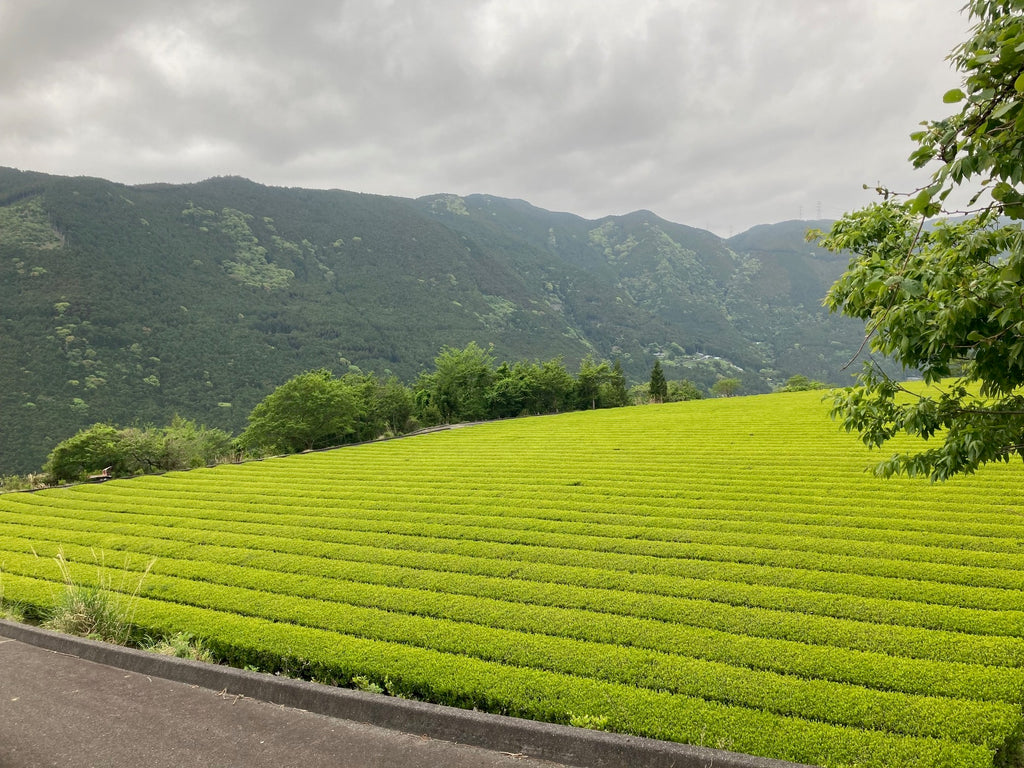
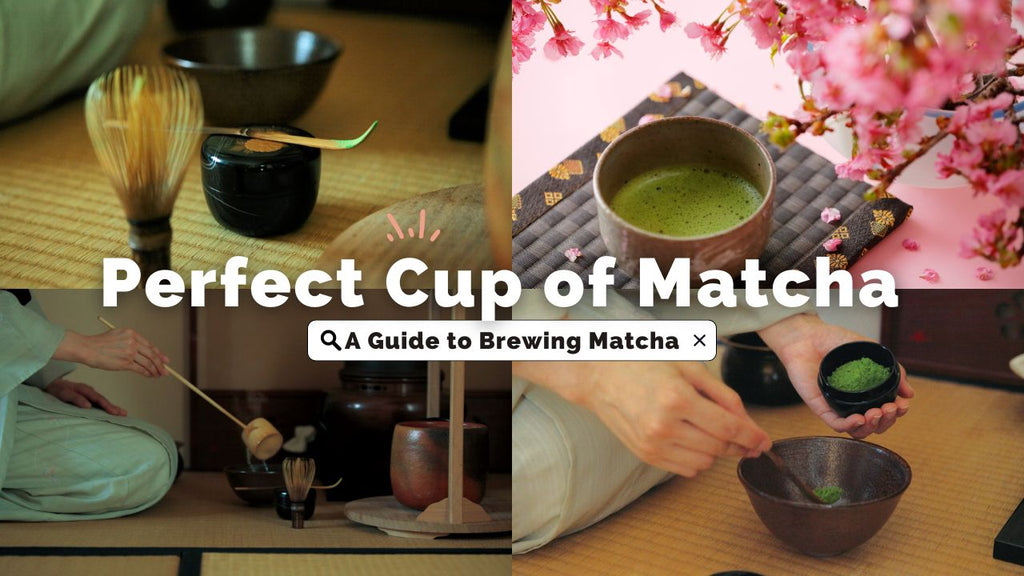
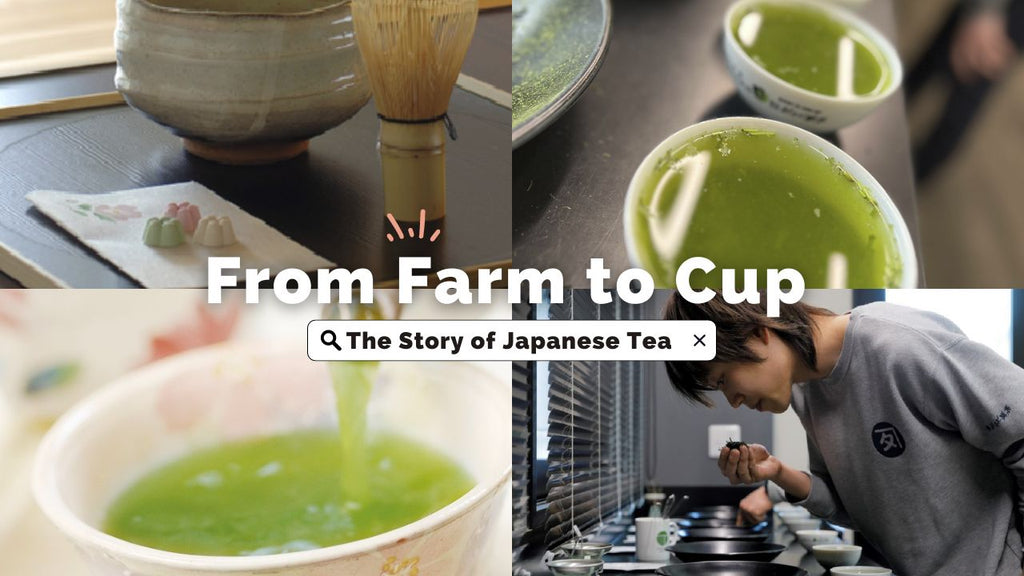
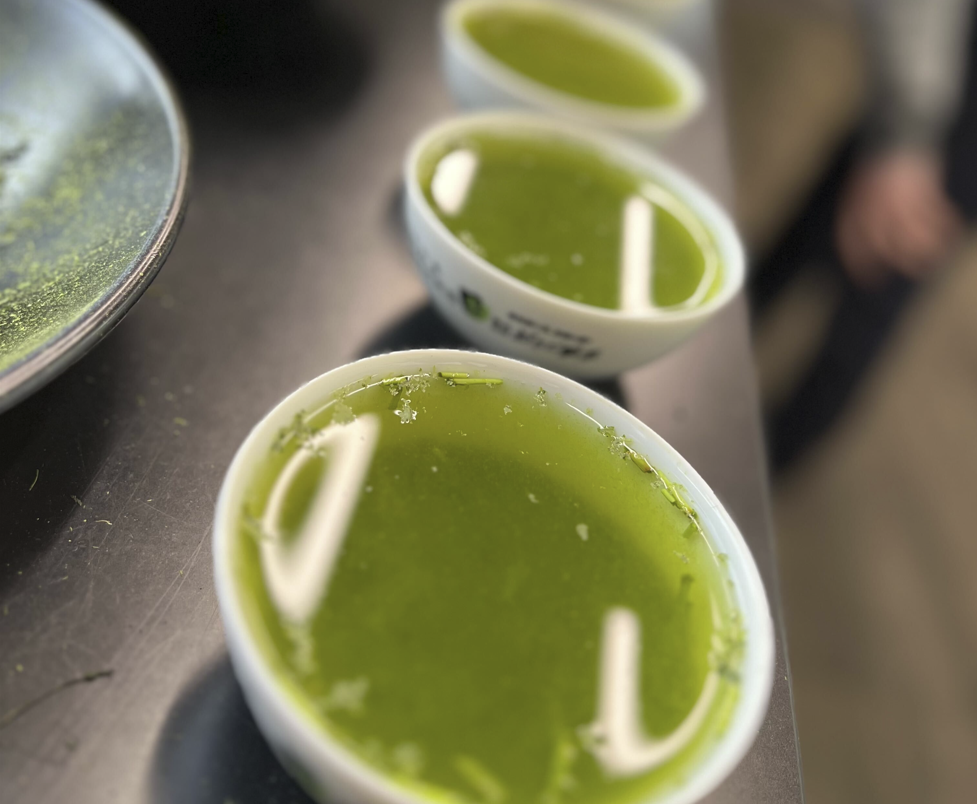

![[OT-10] MATCHA KOSHUN (20g/0.7oz)](http://osadateajapan.com/cdn/shop/products/OT-10-1-_1.jpg?v=1673502690)
![[OT-04] MATCHA NONO (20g/0.7oz)](http://osadateajapan.com/cdn/shop/products/OT-04-1-_1.jpg?v=1673502659)
![[OT-11] MATCHA OKUMIDORI (20g/0.7oz)](http://osadateajapan.com/cdn/shop/products/OT-11-1-_1.jpg?v=1673502695)
![[OT-09] MATCHA SAEAKARI (20g/0.7oz)](http://osadateajapan.com/cdn/shop/products/OT-09-1-_1.jpg?v=1673502685)
![[OT-01] MATCHA SAMIDORI TEZUMI (20g/0.7oz)](http://osadateajapan.com/cdn/shop/products/OT-01-1-c6043315-f32d-4781-9b40-c902247ddea9-_1.jpg?v=1673502644)
![[OT-02] ORGANIC NISHI MATCHA OKUMIDORI (20g/0.7oz)](http://osadateajapan.com/cdn/shop/products/OT-02-1-_1.jpg?v=1673502648)
![[OT-05] ORGANIC NISHI MATCHA TSUYUHIKARI (20g/0.7oz)](http://osadateajapan.com/cdn/shop/products/OT-05-1-_1.jpg?v=1673502663)
![[OT-16] ORGANIC MATCHA HAMANASU (20g/0.7oz)](http://osadateajapan.com/cdn/shop/products/OT-16-1-_1.jpg?v=1673502719)
![[OT-61] ORGANIC BANCHA (30g/1oz)](http://osadateajapan.com/cdn/shop/products/OT-61-1-_1.jpg?v=1673502855)
![[OT-58] ORGANIC GENMAICHA (30g/1oz)](http://osadateajapan.com/cdn/shop/products/OT-58-1-_1.jpg?v=1673502847)
![[OT-34] ORGANIC GYOKURO OKUMIDORI (30g/1oz)](http://osadateajapan.com/cdn/shop/products/OT-34-1-_1.jpg?v=1673502781)
![[OT-33] ORGANIC GYOKURO SAEMIDORI (30g/1oz)](http://osadateajapan.com/cdn/shop/products/OT-33-1-_1.jpg?v=1673502778)
![[OT-56] ORGANIC MATCHA GENMAICHA (30g/1oz)](http://osadateajapan.com/cdn/shop/products/OT-56-1-_1.jpg?v=1673502843)
![[OT-43] ORGANIC OKUMIDORI KABUSECHA (30g/1oz)](http://osadateajapan.com/cdn/shop/products/OT-43-1-_1.jpg?v=1673502808)
![[OT-40] ORGANIC SENCHA AG TSUYUHIKARI (30g/1oz)](http://osadateajapan.com/cdn/shop/products/OT-40-1-_1.jpg?v=1673502801)
![[OT-39] ORGANIC SENCHA HIRAKI ASAMUSHI (30g/1oz)](http://osadateajapan.com/cdn/shop/products/OT-39-1-_1.jpg?v=1673502798)
![[OT-27] ORGANIC OOLONGTEA GOKOU (30g/1oz)](http://osadateajapan.com/cdn/shop/products/OT-27-1-_1.jpg?v=1673502764)
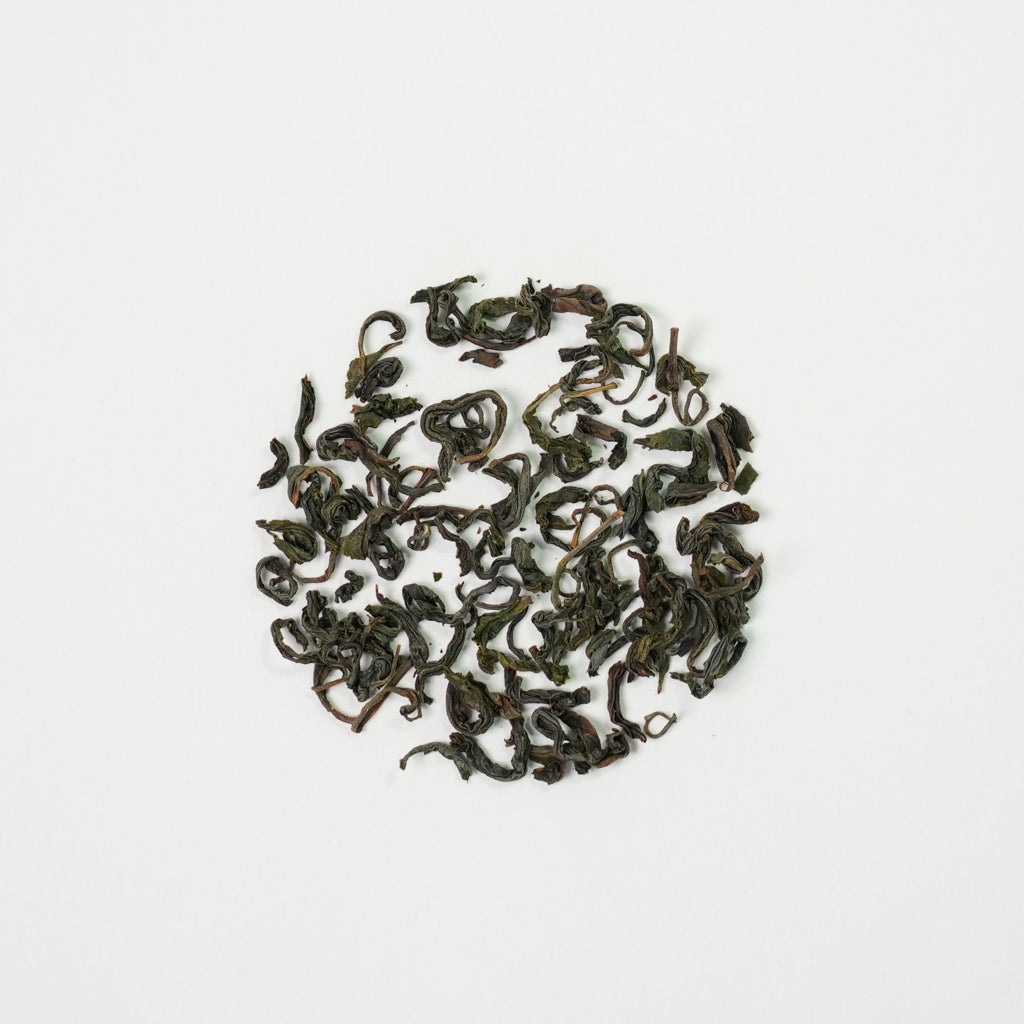
![[OT-28] ORGANIC OOLONGTEA KURASAWA (30g/1oz)](http://osadateajapan.com/cdn/shop/products/OT-28-1-1-_1.jpg?v=1673502766)
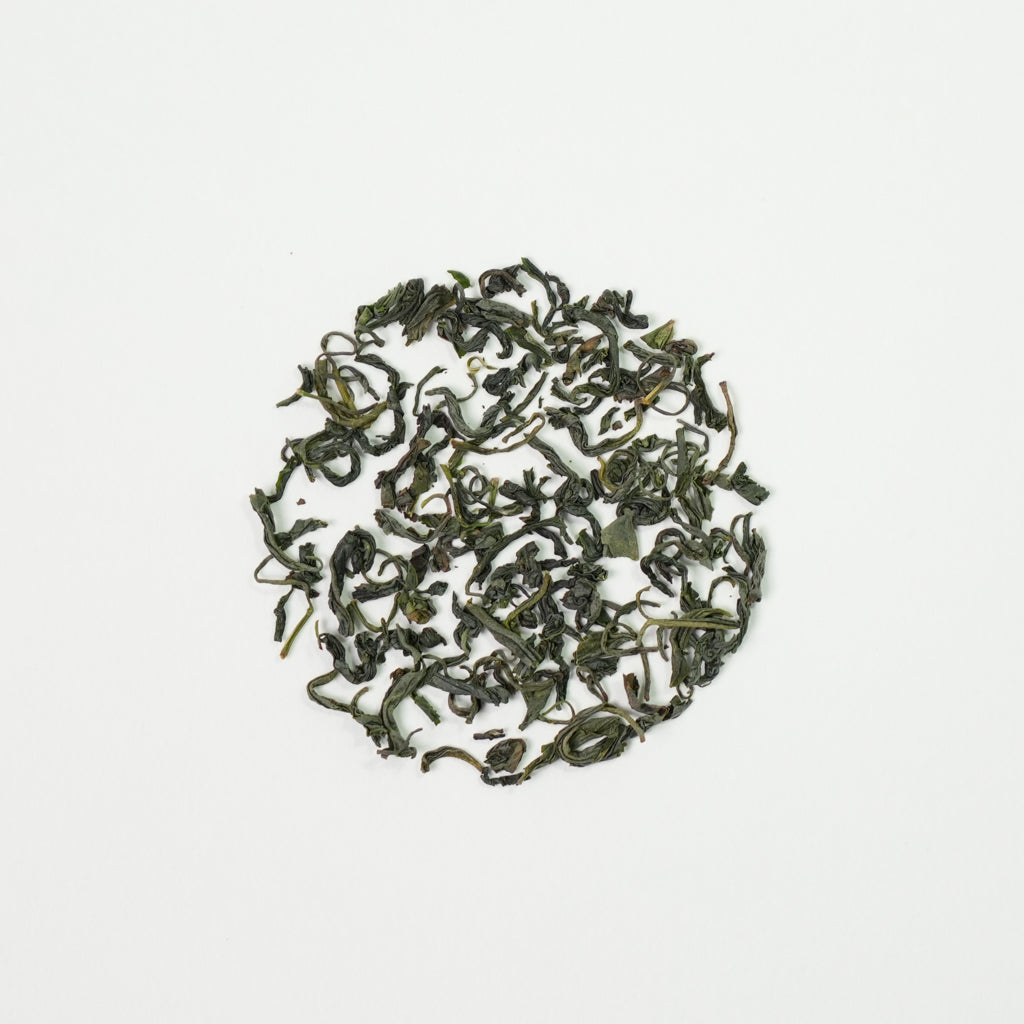
![[OT-31] ORGANIC OOLONGTEA SURUGAWASE SF (30g/1oz)](http://osadateajapan.com/cdn/shop/products/OT-31-1-_1.jpg?v=1673502772)
![[OT-26] ORGANIC OOLONGTEA TSUYUHIKARI (30g/1oz)](http://osadateajapan.com/cdn/shop/products/OT-26-1-_1.jpg?v=1673502762)
![[OT-29] ORGANIC OOLONGTEA ZAIRAI FF (30g/1oz)](http://osadateajapan.com/cdn/shop/products/OT-29-1-_1.jpg?v=1673502768)
![[OT-30] ORGANIC OOLONGTEA ZAIRAI SF (30g/1oz)](http://osadateajapan.com/cdn/shop/products/OT-30-1-_1.jpg?v=1673502770)
![[OT-04] MATCHA NONO (20g/0.7oz)](http://osadateajapan.com/cdn/shop/products/OT-04-5.jpg?v=1671249709)
![[OT-01] MATCHA SAMIDORI TEZUMI (20g/0.7oz)](http://osadateajapan.com/cdn/shop/products/OT-01-5_504055a4-6c55-440d-af84-58b806fd5bf5.jpg?v=1671136783)
![[OT-32] ORGANIC BLACKTEA BENIFUUKI (30g/1oz)](http://osadateajapan.com/cdn/shop/products/OT-32-1-_1.jpg?v=1673502774)
![[OT-32] ORGANIC BLACKTEA BENIFUUKI (30g/1oz)](http://osadateajapan.com/cdn/shop/products/OT-32-5.jpg?v=1671250277)
![[OT-50] ORGANIC KAMAIRICHA FF (30g/1oz)](http://osadateajapan.com/cdn/shop/products/OT-50-1-_1.jpg?v=1673502826)
![[OT-50] ORGANIC KAMAIRICHA FF (30g/1oz)](http://osadateajapan.com/cdn/shop/products/OT-50-5.jpg?v=1671250984)
![[OT-14] ORGANIC MATCHA KAKITSUBATA (20g/0.7oz)](http://osadateajapan.com/cdn/shop/products/OT-14-1-_1.jpg?v=1673502708)
![[OT-14] ORGANIC MATCHA KAKITSUBATA (20g/0.7oz)](http://osadateajapan.com/cdn/shop/products/OT-14-5.jpg?v=1671249965)
![[OT-07] ORGANIC MATCHA KOIAI (20g/0.7oz)](http://osadateajapan.com/cdn/shop/products/OT-07-1-_1.jpg?v=1673502675)
![[OT-07] ORGANIC MATCHA KOIAI (20g/0.7oz)](http://osadateajapan.com/cdn/shop/products/OT-07-5.jpg?v=1671249758)
![[OT-27] ORGANIC OOLONGTEA GOKOU (30g/1oz)](http://osadateajapan.com/cdn/shop/products/OT-27-5.jpg?v=1671250166)
